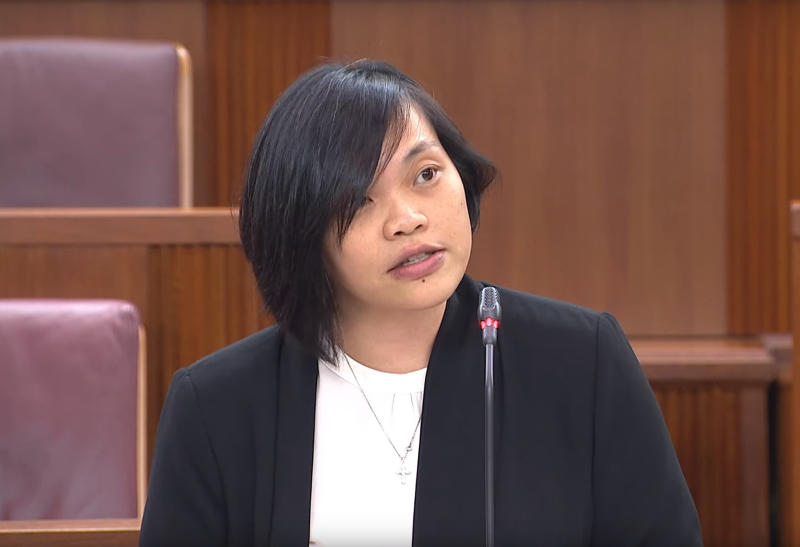Parliament: NMP calls for inclusion of those who are unafraid of challenging establishment views
Sign up now: Get ST's newsletters delivered to your inbox

Nominated MP Kuik Shiao-Yin cautioned that surveys which present an overly positive assessment of public opinion on controversial issues could cause an "unintended widening of the communication gap between leaders and the ground".
PHOTO: GOV.SG
Seow Bei Yi
Follow topic:
SINGAPORE - There may be more people who have dissenting views about what is going on in Singapore than government-commissioned opinion polls reveal, said Nominated MP Kuik Shiao-Yin on Thursday (May 17).
She gave her own sense of ground sentiment in a speech that highlighted the importance of listening to diverse views, during the debate on the President's Address.
In a similar vein, fellow Nominated MP Kok Heng Leun called on political leaders to be aware of their privilege when listening to those from different backgrounds, while Workers' Party Non-Constituency MP Leon Perera asked if the system does enough to promote a diversity of ideas.
On why some opinion polls may register fewer people who hold dissenting views, Ms Kuik said: "This is partly because many people in this segment are unlikely to answer such polls in the first place."
Such individuals do not like registering their dissent openly, she noted. Some assume their opinion is unimportant and others fear their honesty may invite an open rebuke.
But "their quiet dissent is real, and such withholding of views may give leadership the wrong impression that all is quiet on the western front", she added.
Ms Kuik cautioned that surveys which present an overly positive assessment of public opinion on controversial issues, such as transport or water prices, could cause an "unintended widening of the communication gap between leaders and the ground".
She also brought up a recent Straits Times interview with Senior Minister of State Janil Puthucheary, who sits on the Select Committee on Deliberate Online Falsehoods.
On the six-hour questioning of historian Thum Ping Tjin, Dr Puthucheary had said that in his constituency, "nobody asked about it, nobody wanted to talk about it, nobody was the least bit concerned about it".
"This has not been my own experience of the ground," Ms Kuik said, noting that people she talked to have expressed "deepening discomfort" with watching the establishment go for what they perceived as over-kill when dealing with naysayers.
Including more thoughtful voices - who are unafraid of challenging establishment views - makes Singapore's system stronger, she said, urging the Government to seek out more non-establishment types to take part in national level focus groups, committees, boards, ministries and Parliament.
In his speech, Mr Kok asked leaders to be humble when listening to those who are less privileged. "We need to acknowledge that knowing the facts or being intelligent does not mean we can solve all problems and offer good solutions," he said.
He added that with the world becoming increasingly diverse, there is a need to embrace differences, and find a way for people to understand each other and agree to disagree meaningfully.
Mr Perera questioned if the system here does enough to promote a diversity of ideas in the public square.
He called for a scaling back of the extent - if any - of Government influence on the the way news is reported by mainstream media outlets, and for an independent Ombudsman to review complaints about executive decisions, without the complainant being faced with the costs and limitations associated with seeking judicial review.
This, he noted, could help to uncover policy gaps or institutional shortcomings not related purely to corruption or finances, which are already dealt with by other agencies.

